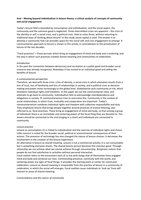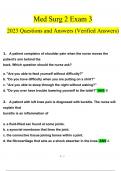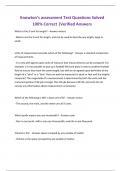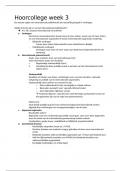Summary
Summary of article by Arai (2003): Moving beyond individualism in leisure theory
- Course
- Institution
Samenvatting van het artikel "Moving beyond individualism in leisure theory: a critical analysis of concepts of community and social engagement" geschreven door Arai. Taal: Engels. Nodig voor het tentamen van Leisure and Urban Development (ILS). Zie bij mijn bundels voor samenvatting van alle a...
[Show more]












